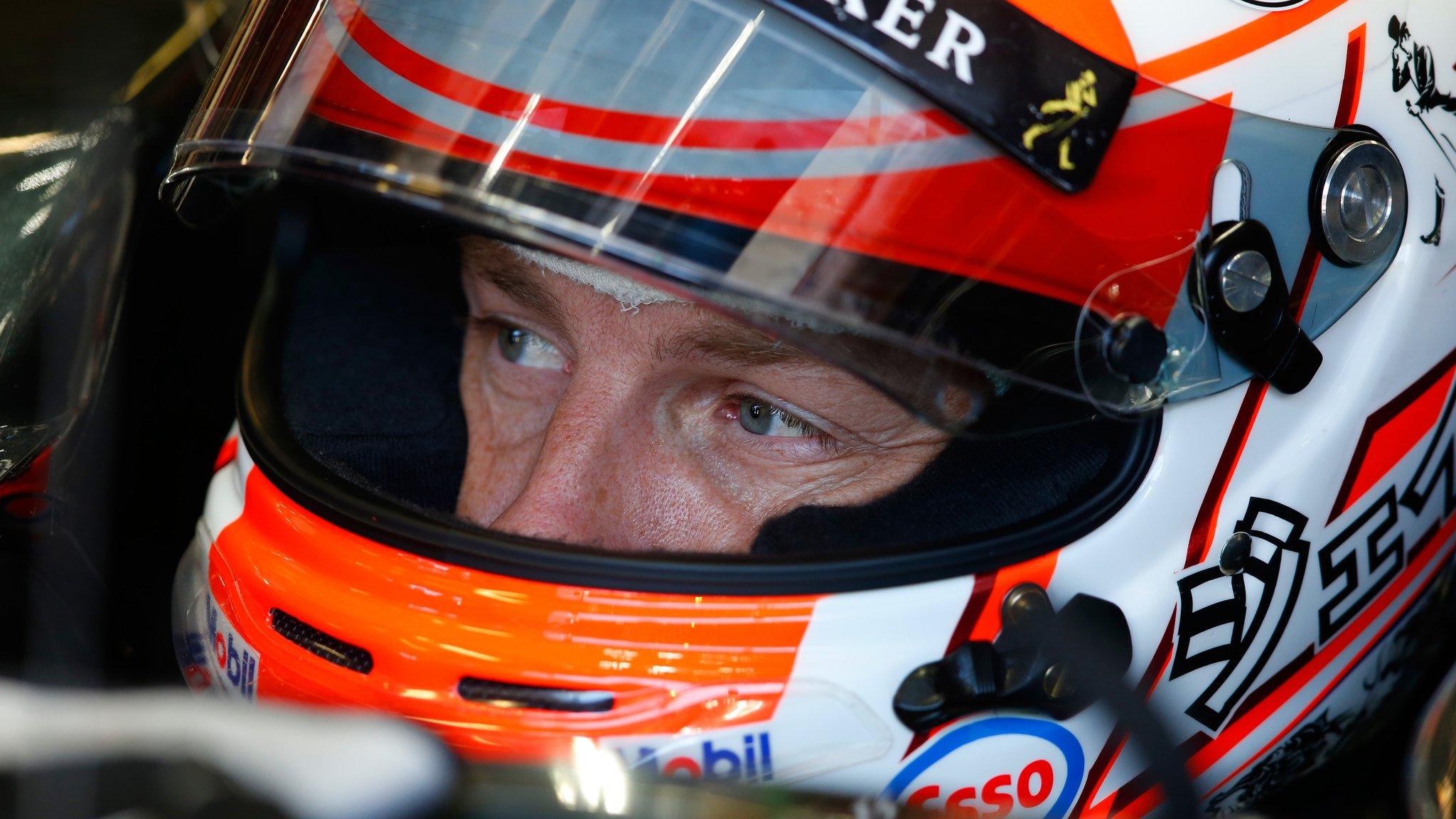Singapore GP: 'A blip? Or have Mercedes lost it?'
- Published
- comments
The colour of the car had changed, as had the language in which he conducted the post-race radio exchanges with his team.
But in every other way Sebastian Vettel's victory for Ferrari in the Singapore Grand Prix bore an uncanny similarity with so many of those he took with Red Bull.
In drinks-giant blue, Vettel swept all before him for four years from 2010 to 2013, and the pain he inflicted was felt most keenly most often by the historic red of Ferrari and their former lead driver Fernando Alonso.
At the weekend, it was Ferrari inflicting the pain, and Vettel its main agent again.
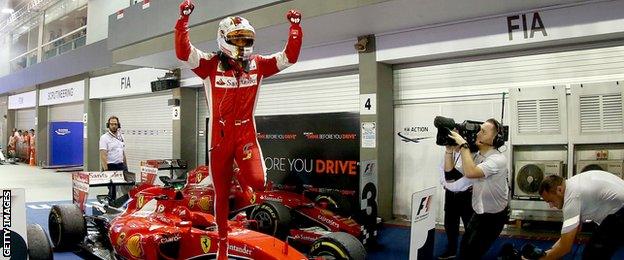
Sebastian Vettel has previously won this season in Malaysia and Hungary
The history of the last 18 months has been painted silver, but this weekend the dominant Mercedes cars were inexplicably off the pace - something we will come back to in a moment - and Vettel turned back the clock with what he said was "one of" his finest victories.
Or did he turn it forward? Vettel went to Ferrari, on the back of the most disappointing year of his career in 2014, in the hope of emulating his childhood hero Michael Schumacher and winning the title with them.
Alonso made that possible for him by leaving - because he had lost faith that Ferrari would ever get there.
For most of this season, it has looked like Ferrari still had a long road to travel. Now, at least on the evidence of Singapore, perhaps that ambition does not look so far away after all.
Vettel's win, coupled with Lewis Hamilton's first retirement of the year, puts the German 49 points behind the world champion with 150 still available in the remaining six races.
On the face of it, realistically, that is surely too big a gap to bridge. But after a weekend like Singapore anything suddenly seems possible.
"If we have more weekends like this, yes, we can do it," Vettel said. "We have to look at ourselves. We can't control them. We will give it everything - maximum attack and try to make the impossible possible."
Vettel at his best
Before the weekend, much of the focus had been on whether Hamilton would make his career statistically equal with his idol Ayrton Senna's and take his 41st victory in his 161st grand prix.
The fact that Vettel had already reached that mark three races previously - in what was only his 149th race in Hungary in July - had been somewhat overlooked.
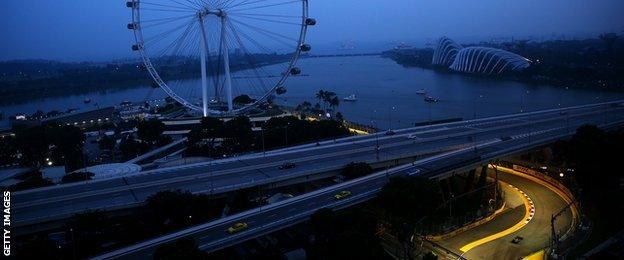
The Marina Bay Circuit was modified for this year's race in the hope of improving overtaking
Now, on 42, he is clear of Senna and has Alain Prost's record of 51 wins in his sights, a fact the Frenchman acknowledged after the race. "Well done, Sebastian," Prost said on Twitter. "I can see you in my mirrors now."
When the Mercedes cars were first and second in first practice early on Friday evening - with Nico Rosberg ahead of Hamilton - it looked very much like it was going to be business as usual in Singapore.
But then things started to get unusual. Hamilton and Rosberg were only fourth and seventh in second practice after the sun had set and the Ferraris and Red Bulls suddenly seemed to have an advantage.
Out of the four drivers in those two teams, two were clearly superior to their team-mates - Vettel and Daniel Ricciardo. And the Ferrari had the edge on the Red Bull.
Vettel was in stunning form - and his weekend was such a mirror image of so many of his wins for Red Bull that it was uncanny.
As so many times in the past, he had the fastest car of the weekend. He felt confident in it. He extracted the maximum from it, with a stunning pole lap. And he controlled the race at will, keeping himself just far enough out of reach of his rivals to be comfortable, turning on his blistering pace only when he needed it.
Even before Singapore, how different Vettel has looked this year from the tortured, confused figure he cut in his final season with Red Bull in 2014, when he was more often than not beaten by Ricciardo.
Substantially quicker than team-mate Kimi Raikkonen - just as Alonso was last year - Vettel has slipped comfortably into the role of team leader and Ferrari have rallied around his work ethic and relaxed but steely personality.
Sterling work over the winter on the car's engine - its biggest weakness last year - elevated them to second-best team behind Mercedes. But the deficit was still large and there was clearly plenty of work still to do.
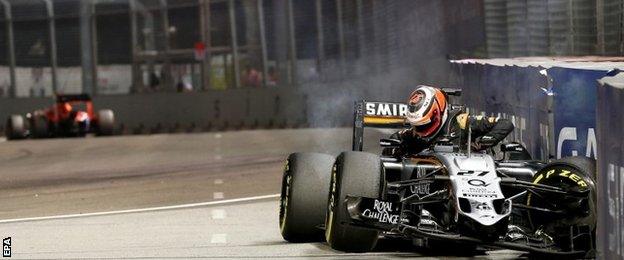
Hulkenberg was handed a three-place grid penalty after his crash with Massa
There had been two victories before Singapore, but they came about in specific circumstances - in Malaysia because Ferrari had better tyre wear than Mercedes, got the lead and an advantage through strategy and were able to maintain it, and in Hungary because Hamilton made a couple of uncharacteristic mistakes.
In neither race, though, were they demonstrably quicker than Mercedes - in fact in Hungary they were clearly some way off Hamilton's pace. In Singapore, though, the Ferrari was unquestionably the fastest car.
It was obvious that it was because Mercedes had slipped back, rather than Ferrari making some giant leap forward. And the question was: why?
The Mercedes mystery
An upgraded Ferrari engine for the last race in Monza was definitely a step forward - but Mercedes had one, too. And there Hamilton still had a 0.3-second advantage in qualifying and the best part of a second a lap in the race.
From the start of second practice in Singapore, though, it became clear that something dramatic had changed.
A clear advantage of at least half a second for Mercedes had turned into a deficit of nearly a second and a half - a net loss of two seconds in two weeks.
What on earth was going on? The drivers certainly did not know.
"The car is nowhere," Rosberg said, "which is very difficult to understand."
"Our problem," Hamilton said, "is we just haven't been able to get the tyres in the window. They just weren't switching on."
Team boss Toto Wolff said he believed there must be something awry in the set-up of the car on the unique Marina Bay circuit.
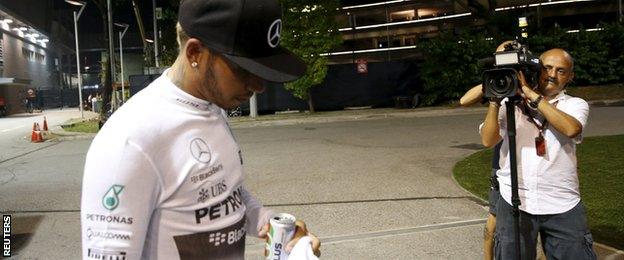
Lewis Hamilton suffered his first retirement of the season
"You need to set the car up in an aggressive way to make the tyres work," he said, "and I guess somewhere along the way at one of the junctions we went the wrong way."
For much of the weekend, the talk from neutrals was how refreshing it was to see Mercedes struggling for once, and other cars at the front. Alonso's McLaren team-mate Jenson Button even said it was "exactly what F1 needed".
But that did not make it any less perplexing. Could it really be possible that Mercedes could lose so much time just because they did not make the tyres work in the way they should?
Engineers up and down the pit lane would say that, theoretically, yes it is. They talked about the difficulty of making these Pirelli tyres work, the "peakiness" of the tyre, how "if you don't get it spot on, then it can be more than the usual few tenths you are off the pace", as Williams performance chief Rob Smedley put it.
But two seconds a lap? On the best car in the business? With what most believe to be the fastest driver?
Inevitably, this being F1, conspiracy theories abounded.
Some were down to earth - was this something to do with the new higher minimum tyre pressures demanded by Pirelli after the blow-outs of Spa? (Unlikely, given they're not really that different).
Others were outlandish - had Bernie Ecclestone ordered Mercedes to be given disguised harder tyres to spice things up for the weekend? "It crossed my mind," Wolff said. "I have seen a lot of things, but I don't think Pirelli would do that."
The only thing that was clear was that something was up - and no-one could be completely sure what it was.
Looking forward
Inevitably, the F1 world looks a different place after Singapore. How could it not?
But was this a decisive shift, the first race of a genuine Ferrari revival, the start of an unlikely late title challenge by Vettel? Or was it an aberration, with normal service to be resumed over the rest of the season?
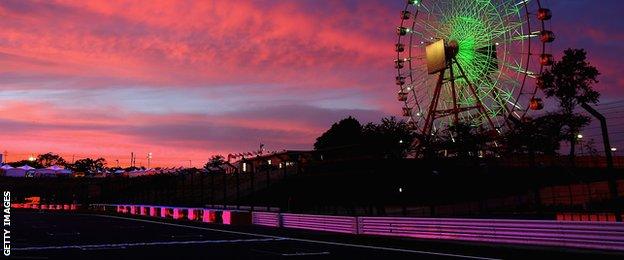
The Japanese Grand Prix at Suzuka has always been admired by fans and drivers alike for its fast corners
There is not long to wait for an answer. On Friday morning, Hamilton, Vettel and the rest will be on track for first practice at Suzuka, preparing for Sunday's Japanese Grand Prix.
Like Marina Bay, it too is unique - but in a completely different way.
Singapore is all heat and claustrophobia, a torture chamber of bumps and sweat lined with concrete.
Suzuka is a majestic contrast - 3.6 miles of open swoops and twists that amount to probably the greatest test for a racing driver on the planet. About the only thing the two circuits share is that a mistake will almost certainly be punished with a crash.
On the face of it, Suzuka is exactly the sort of place where Mercedes should be in their element. But after Singapore, who can be sure?
- Published20 September 2015
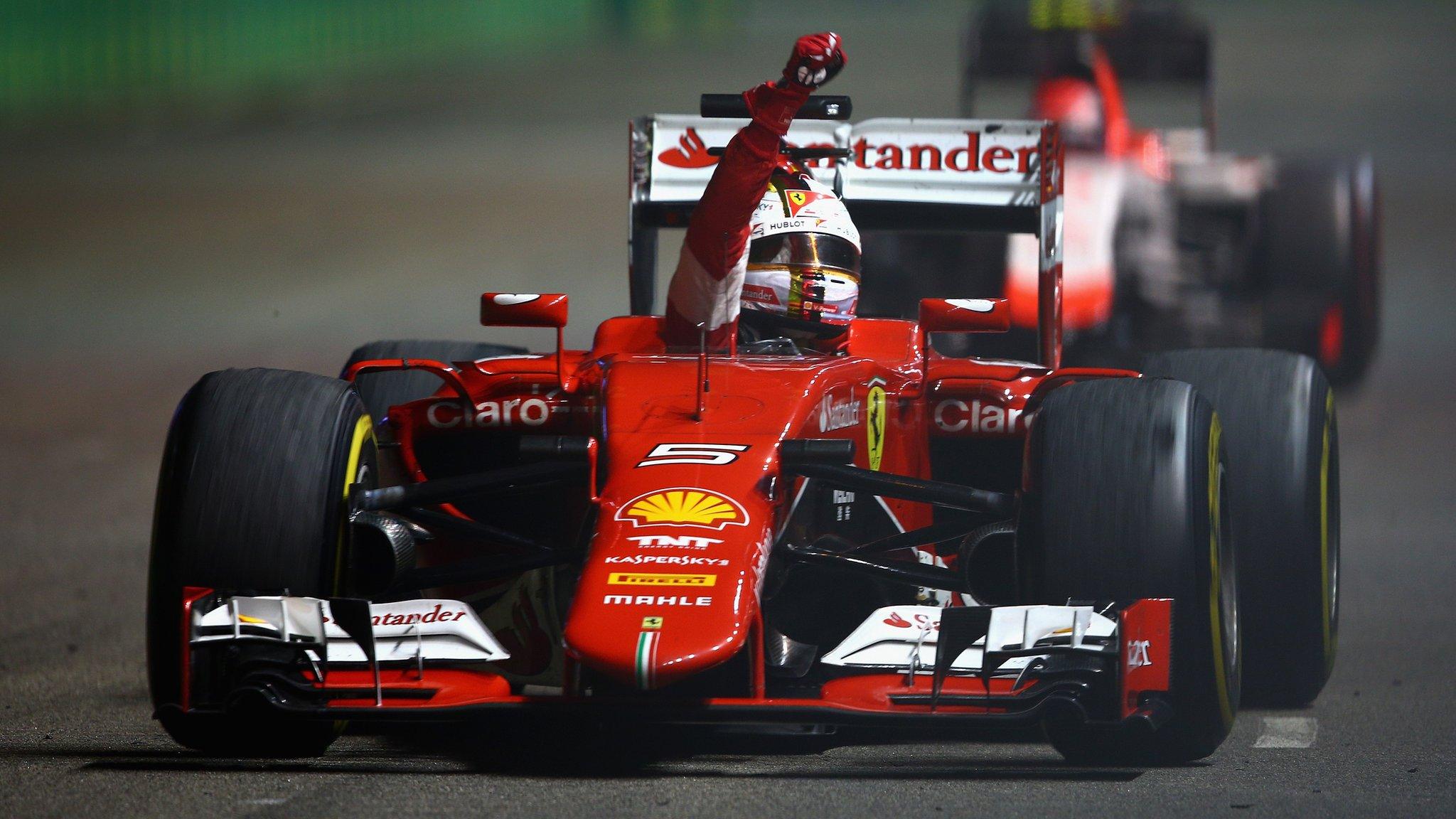
- Published20 September 2015
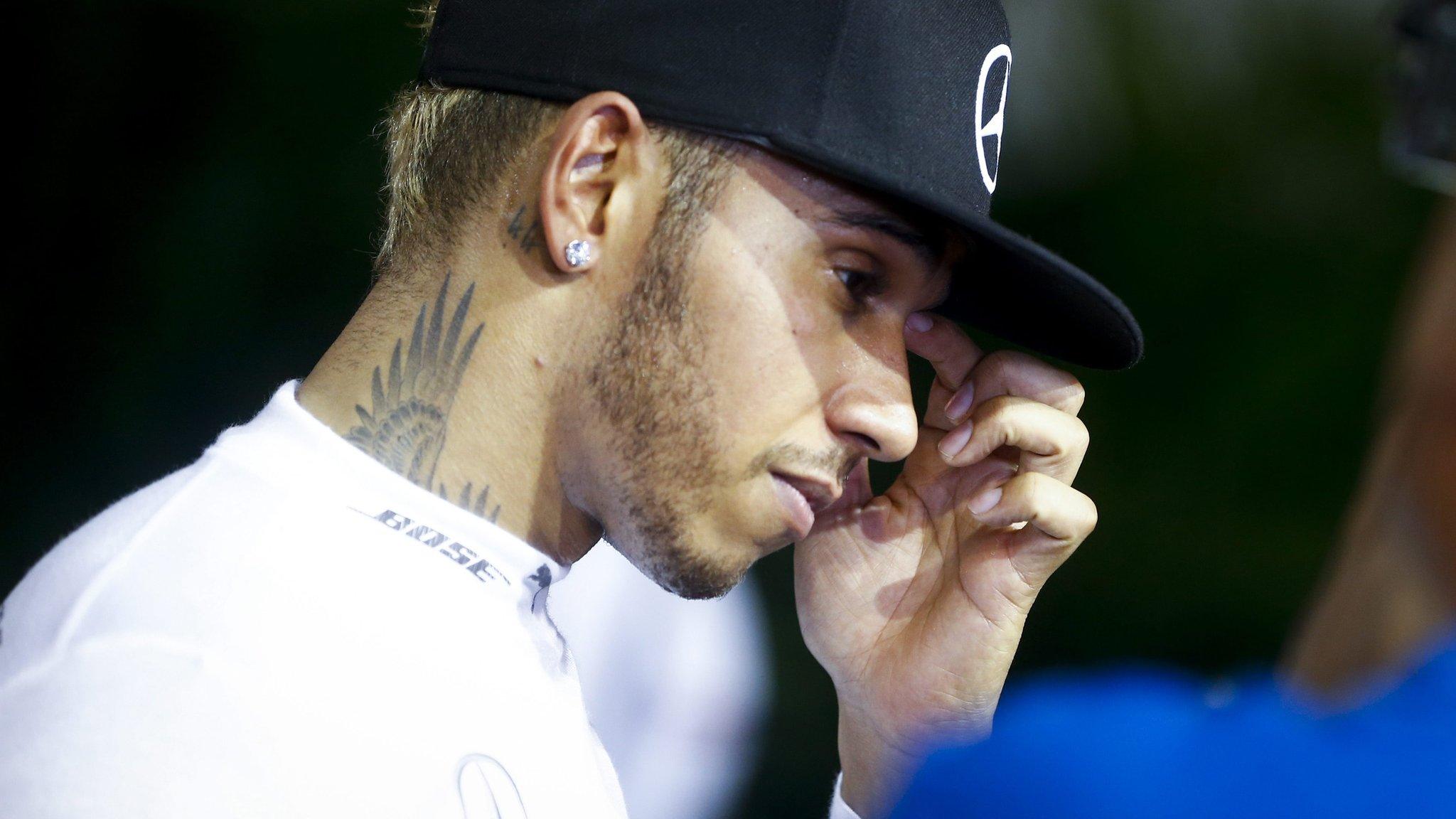
- Published10 September 2015
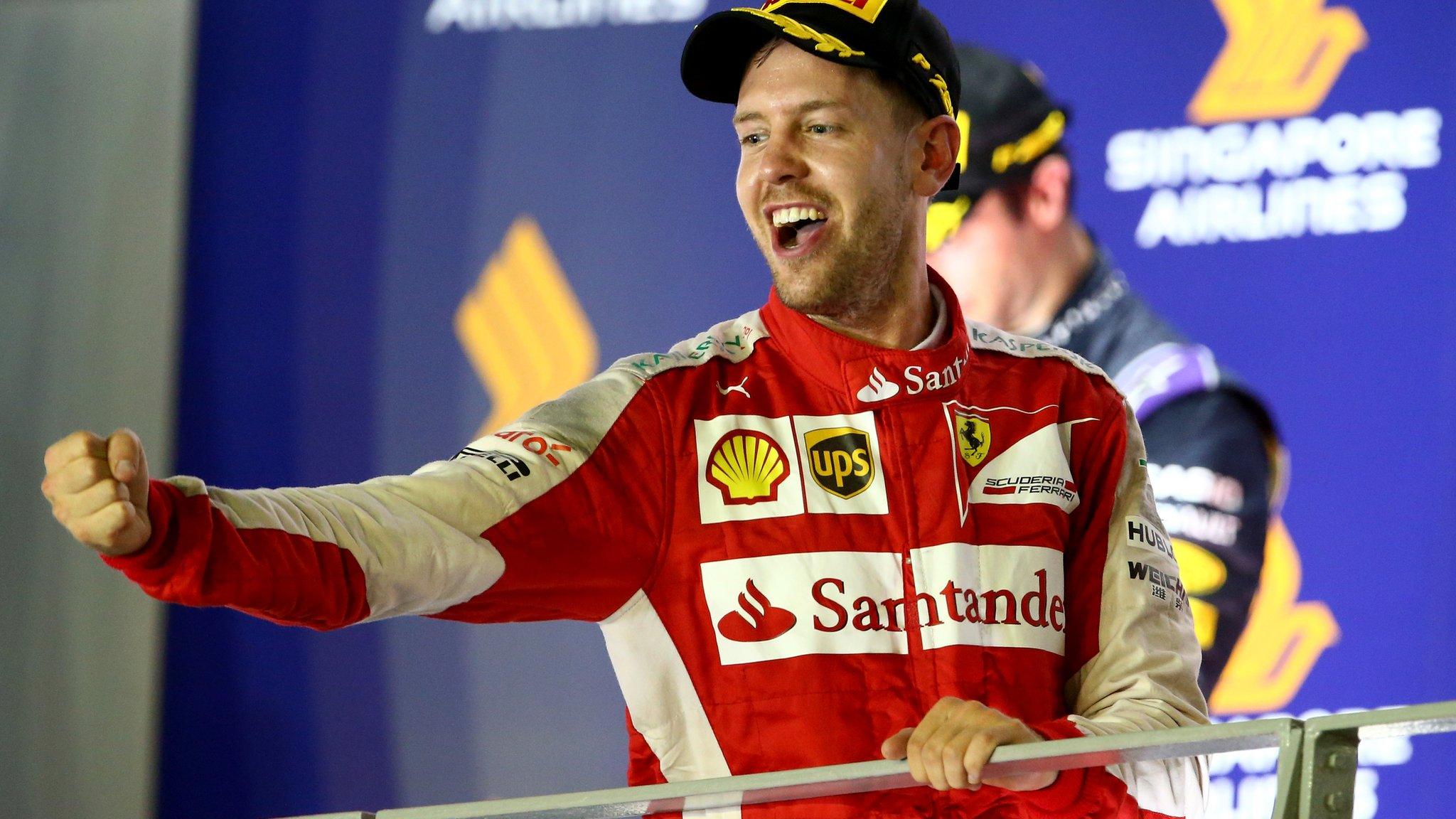
- Published17 September 2015
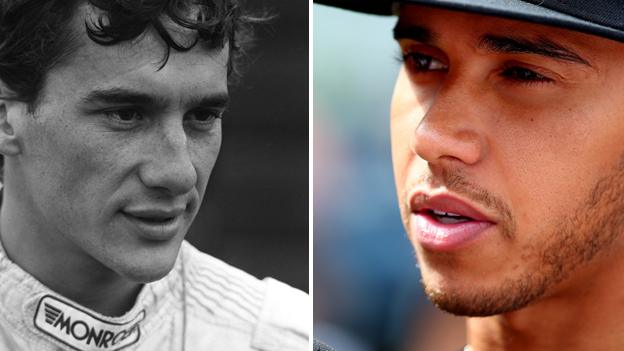
- Published17 September 2015

- Published18 September 2015
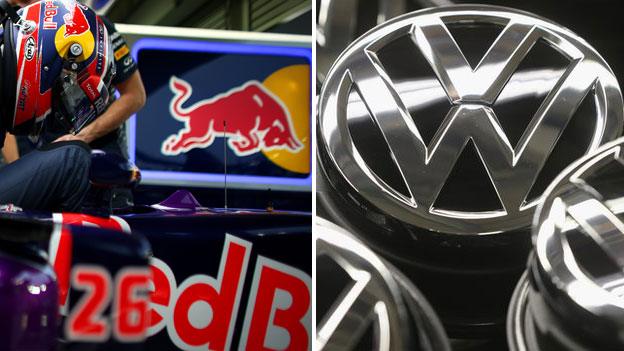
- Published19 September 2015
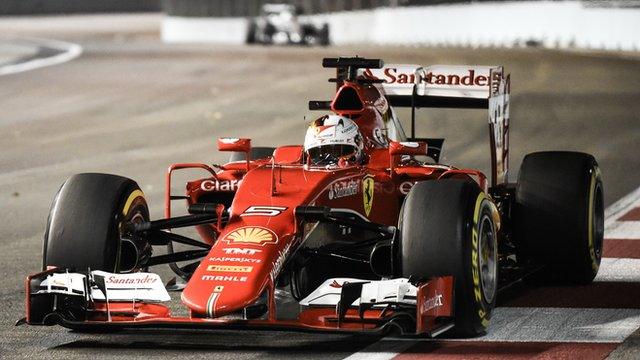
- Published19 September 2015
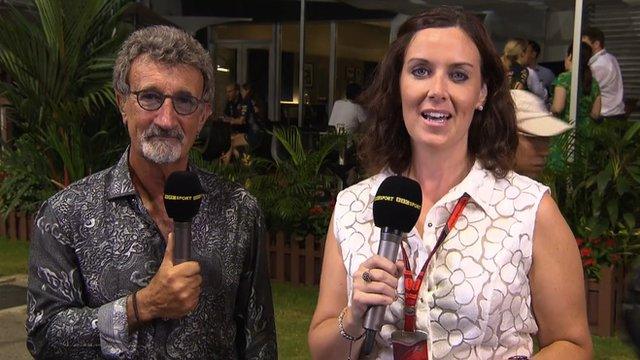
- Published16 September 2015
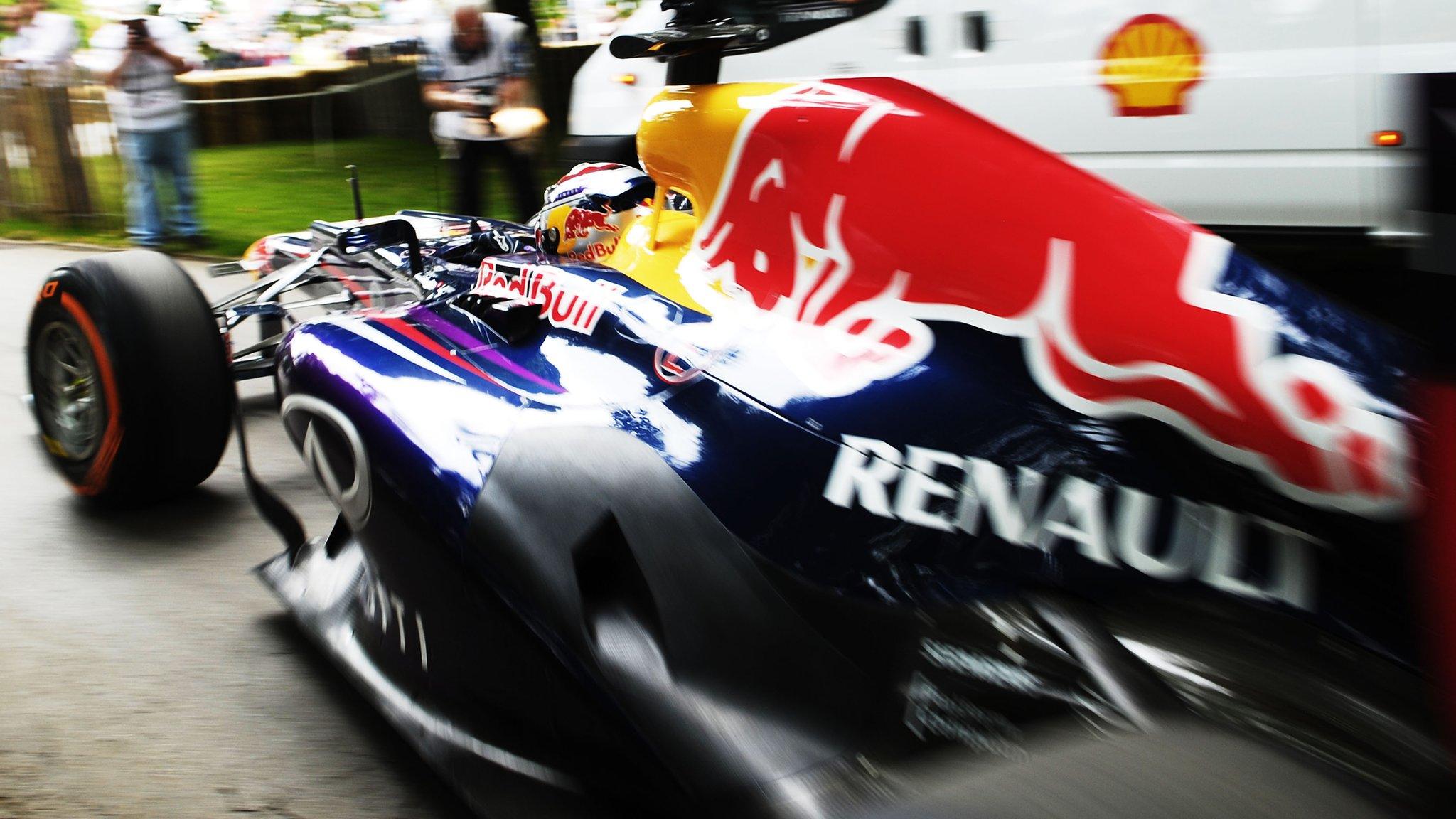
- Published19 September 2015
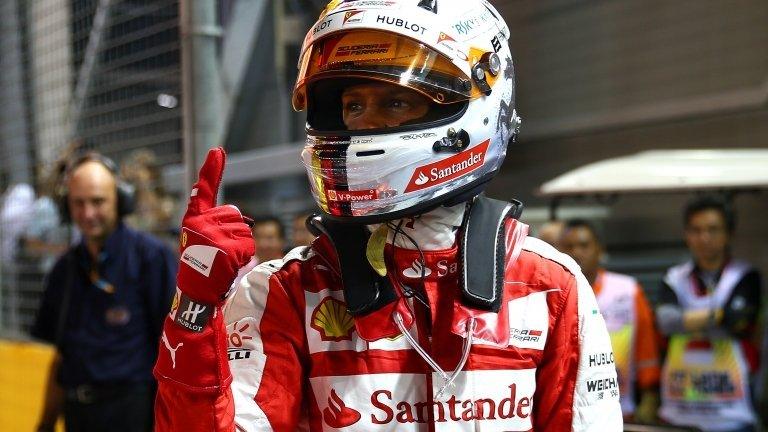
- Published19 September 2015
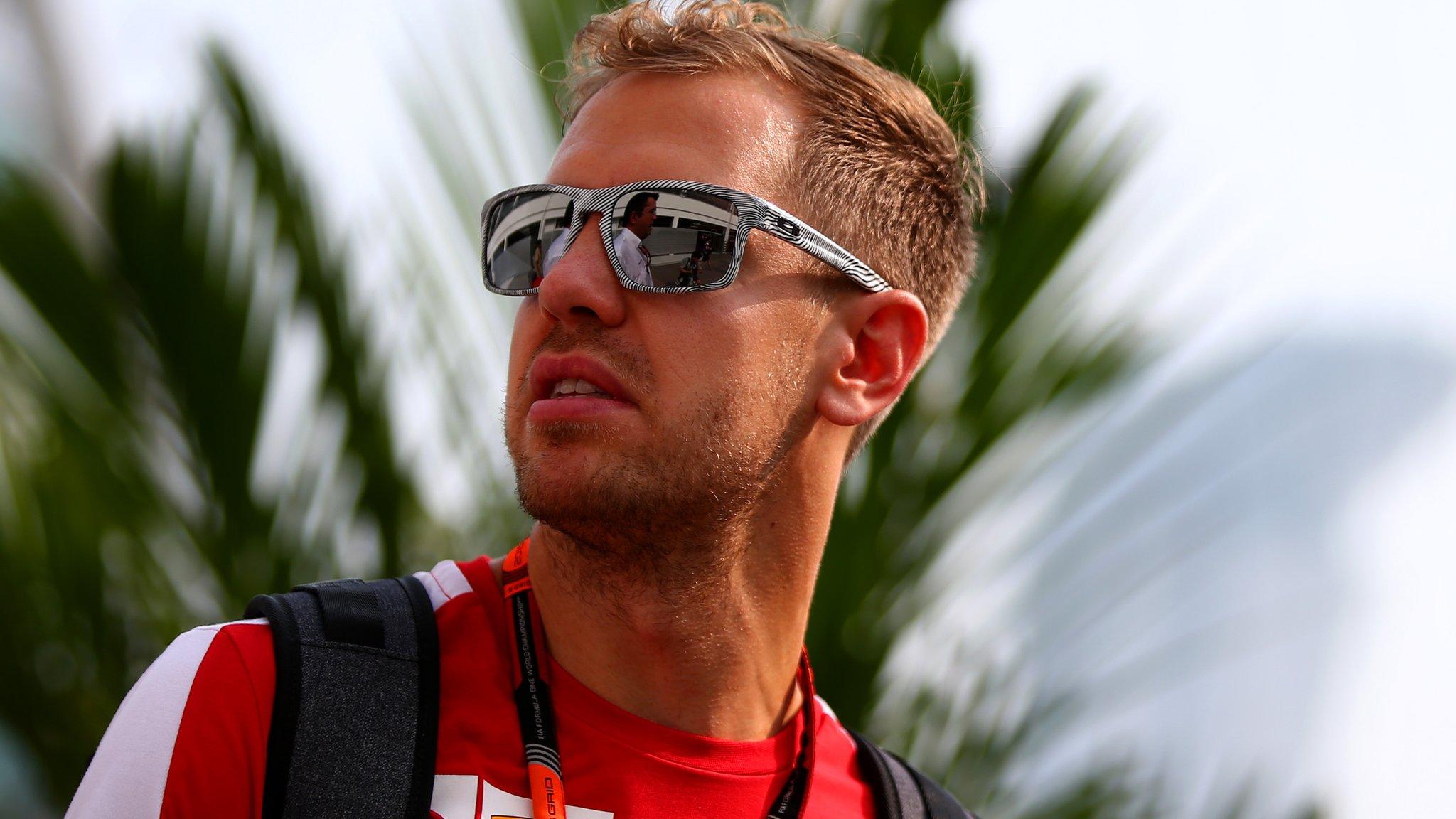
- Published10 September 2015
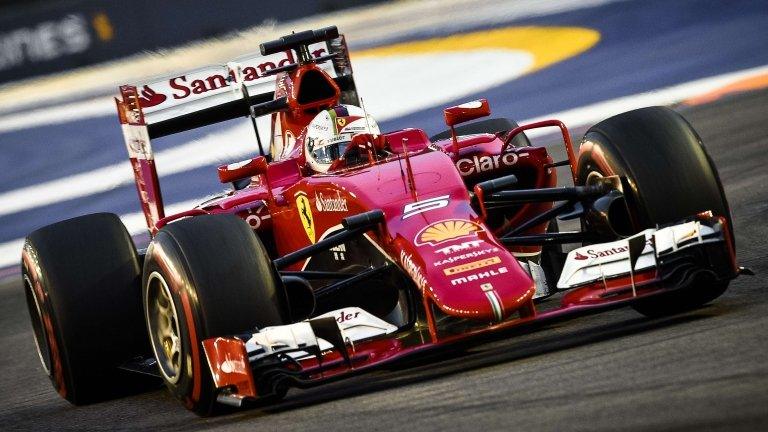
- Published18 September 2015
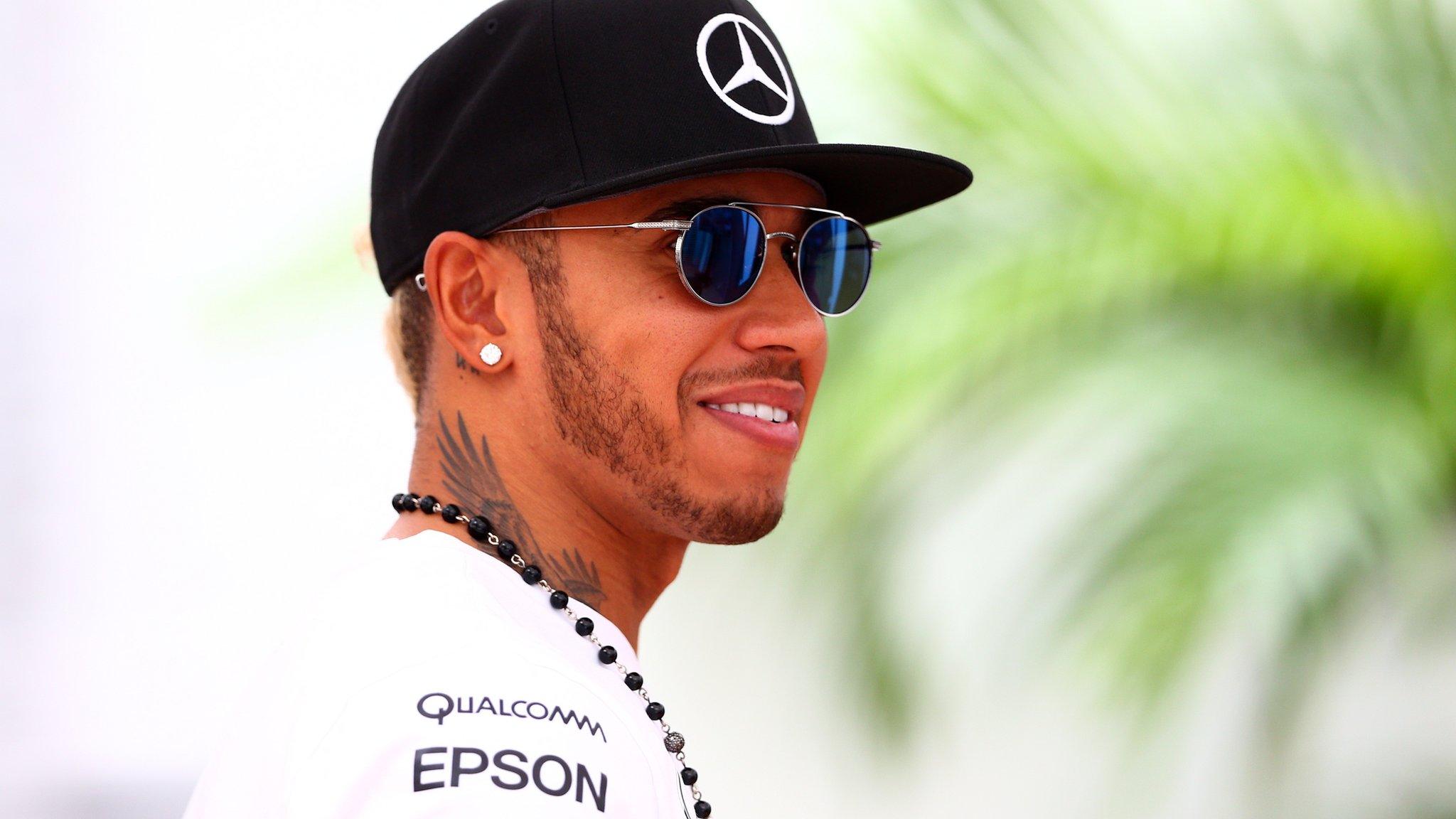
- Published17 September 2015
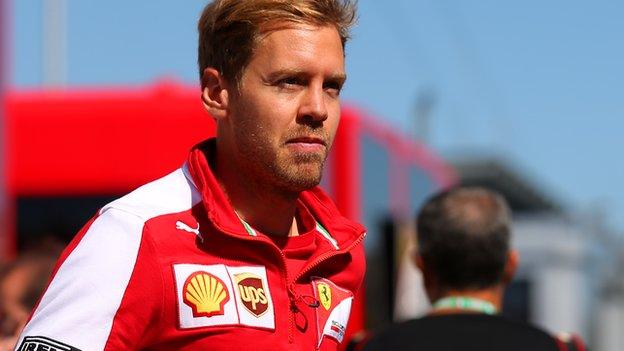
- Published17 September 2015
